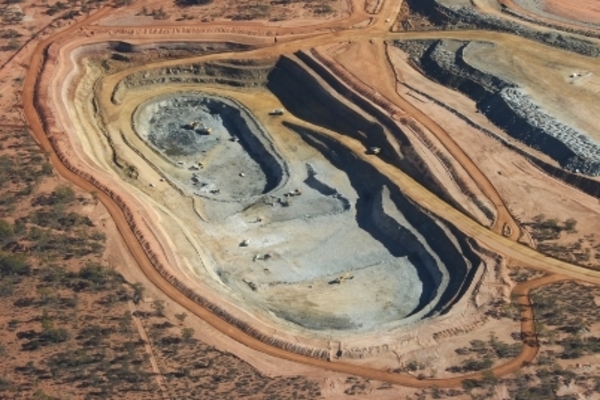
A Complete Learning and Reference Package for the Mining Industry! This bundle offers one-year access to Edumine Answers, the most comprehensive mining knowledge resource, and Introduction to Modern Mining, our flagship mining fundamentals course. Whether you're new to the industry or an industry veteran, this has got you covered. What’s Included? Edumine Answers Subscription – Our new interactive learning tool allows you to ask free-form questions and receive instant, accurate answers whenever and wherever you need them. The answers are drawn from our meticulously curated library of over 110 peer-reviewed courses, which are continuously updated to reflect the latest industry knowledge. Introduction to Modern Mining Course – A structured introduction to today’s mining industry, covering exploration, extraction, processing, sustainability, and investment. This course provides essential insights into modern mining practices and industry trends, making it the perfect starting point for industry newcomers. Who Is This For? Professionals and decision-makers who need quick, reliable mining insights Investors and analysts looking for expert-backed information on mining operations and markets Technical personnel such as geologists, chemists, engineers, data scientists, and procurement specialists seeking an accessible reference tool Students and newcomers wanting a structured introduction to modern mining Government officials, regulators, policy setters, and members of non-governmental organizations (NGOs). Equip yourself with one year of unlimited expert access and a strong industry foundation with the Edumine Fundamentals Bundle—your key to navigating the modern mining world with confidence! Why Edumine Answers? Watch the 1 Minute Demo Read more

The Smartest Way to Learn in Mining! We are excited to announce that Edumine is now leveraging cutting-edge AI technology to enhance your learning experience! Our new interactive learning tool allows you to ask free-form questions and receive instant, accurate answers drawn from our meticulously curated library of over 110 peer-reviewed courses. Subscribe now and get 12 months of access! The first stop for learning and decision-making in a rapidly evolving industry, bridging the gap between experience and instant knowledge. Edumine Answers is an AI-powered mining knowledge tool that provides instant, expert-vetted answers to technical, operational, and strategic questions. Whether you’re an engineer, geoscientist, mine manager, HR professional, or investor, Edumine Answers delivers instant answers whenever and wherever you need them. Watch the 1 Minute Demo Read more

Este curso es el tercero de una serie de tres cursos sobre planificación minera y es la continuación de los dos cursos anteriores. Planificación minera 1: estrategia se centró en tres de las cinco palancas principales para la creación de valor como parte del proceso de planificación minera estratégica (incluida la selección del método de minería, la selección de la ruta del proceso y la escala de operación). Planificación minera 2: operaciones luego ilustró el uso de las dos palancas finales, incluidas la secuencia y la programación y la política de ley de corte. Planificación minera 3: optimización le presenta los conceptos de optimización matemática que a menudo forman la base de muchas de las herramientas de planificación computarizadas que están disponibles comercialmente en la actualidad. Es importante comprender cómo funcionan estas herramientas y los algoritmos fundamentales detrás de ellas para ayudar en el proceso de planificación minera. Alcance Este curso se centra en el uso de técnicas y procesos de optimización matemática. Al finalizar este curso, los participantes podrán desarrollar modelos básicos de programación matemática y resolverlos en Excel con el fin de asignar recursos limitados para obtener el máximo beneficio (dentro del contexto minero). La codificación y la creación de scripts están fuera del alcance de este curso. Autores Dr. Micah Nehring Ph.D. Dr. Sean Shafiee Ph.D. Duración: 20 horas Categoría: Minería Fecha de la versión: 21 de septiembre de 2017 Read more

Este curso es el segundo de una serie de tres cursos sobre planificación minera. Planificación minera 2: Operaciones le presenta los conceptos clave de planificación minera de secuencia y programación, así como la ley de corte. El proceso de planificación minera es complejo e integra varias ramas técnicas de la disciplina minera, incluidas la mecánica de rocas, la rotura de rocas, la ventilación y el diseño de minas. Si bien los planificadores de minas deben esforzarse por diseñar e implementar planes que sean seguros, ambientalmente sostenibles y socialmente aceptables, el factor primordial en el éxito de una operación minera y lo que en última instancia determina si continuará a través de los estudios de factibilidad y la construcción y el desarrollo es el nivel de rentabilidad. El impulso para explotar un recurso mineral de manera que agregue tanto valor como sea posible al negocio minero requiere una actualización continua del plan de la mina y la rápida implementación de cualquier oportunidad de agregar valor a medida que surja. Alcance Este curso se centra en los conceptos principales asociados con la investigación del impacto financiero de una serie de palancas clave en el valor de un plan de mina. Este curso no investiga los conceptos técnicos básicos requeridos en la minería. Se supone que se han establecido todos los parámetros técnicos y que son factibles. Por lo tanto, el enfoque se centra en establecer la optimización financiera mediante la planificación y la generación del mejor plan minero. Este curso tampoco enseña el uso de software de planificación y diseño de minas que, en algunos casos, puede incorporar los conceptos analizados en el mismo. Autores Dr. Micah Nehring Ph.D. Dr. Sean Shafiee Ph.D. Duración: 17 horas Categoría: Minería Fecha de la versión: 14 de abril de 2016 Read more

Planificación minera 1: Estrategia le presenta los conceptos clave de la planificación minera. El proceso de planificación minera es complejo e integra varias ramas técnicas de la disciplina minera, incluidas la mecánica de rocas, la rotura de rocas, la ventilación y el diseño de minas. Si bien los planificadores de minas deben esforzarse por diseñar e implementar planes que sean seguros, ambientalmente sostenibles y socialmente aceptables, el factor primordial en el éxito de una operación minera y lo que en última instancia determina si se llevará a cabo a través de estudios de factibilidad y luego se llevará a cabo la construcción y el desarrollo es el nivel de rentabilidad. El impulso para explotar un recurso mineral de manera que agregue tanto valor como sea posible al negocio minero requiere una actualización continua del plan de la mina y la rápida implementación de cualquier oportunidad de agregar valor a medida que surja. Se supone que los participantes del curso tienen un buen conocimiento de los términos y descripciones de la minería, han estado expuestos a métodos de minería de superficie y subterránea, están familiarizados con el desarrollo, las operaciones y la producción mineras y están interesados en aprender a planificar una mina con el propósito de maximizar el valor. También se espera que los participantes del curso tengan conocimientos básicos de mecánica de rocas, rotura de rocas, ventilación, equipos mineros típicos y otros fundamentos técnicos que forman la plataforma y las limitaciones para generar planes mineros. Alcance Este curso se centra en los conceptos principales asociados con la investigación del impacto financiero de una serie de palancas clave en el valor de un plan minero. Este curso no investiga los conceptos técnicos básicos necesarios en la minería. Se supone que se han establecido todos los parámetros técnicos y que son factibles. Por lo tanto, el enfoque se centra en establecer la optimización financiera mediante la planificación y la generación del mejor plan minero. Este curso tampoco enseña el uso de software de planificación y diseño de minas que, en algunos casos, puede incorporar los conceptos analizados en el mismo. Autores: Micah Nehring Shahriar Shafiee Duración: 14 horas Categoría: Minería Fecha de la versión: 16 de septiembre de 2013 Read more

About the Course This course covers the essential considerations for preparing National Instrument 43-101 technical reports, including its history, components, rules, guidelines, and sources for additional information. Learn the essential considerations, stages, international definitions, best practices, and public disclosure requirements in the preparation of National Instrument 43-101 Technical Reports for Mineral Resources and Mineral Reserves. This course provides a detailed overview of the Companion Policy section of NI 43-101, including its general guidance, key requirements, and best practices. It is essential for Qualified Persons (QPs) to understand these policies to comply with regulatory standards in the mining industry The course consists of four modules each with supporting figures, tables and examples, plus interactive course reviews. Course duration is equivalent to approximately 9 hours of viewing content. About the Audience Participants should ideally have a background in geology, mining engineering, or mineral processing, as the course focuses on the technical and regulatory aspects of mineral resource reporting. Professionals with knowledge of regulatory frameworks, finance, or investment in the mining sector would also benefit, as NI 43-101 plays a key role in resource valuation and compliance. The course is most suited for geologists, mining engineers, consultants, and legal or finance professionals in the mining industry. Prior knowledge of technical reports in mining would be advantageous. About the Author Reno Pressacco is a consulting Mineral Resource geologist. He holds a Masters Degree from McGill university and has over 37 years of experience spent in such roles as mineral exploration, mine development, mine production, and as a consultant to the mining industry. During his career he has played a key role in identifying the economic potential of the Matachewan gold deposit (Ontario) at the exploration stage. This deposit achieved commercial production in 2013 and is now known as the Young-Davidson mine. The Young-Davidson mine produced approximately 190,000 ounces to 205,000 ounces of gold in 2021 and is forecasted to produce between 185,000 to 205,000 ounces of gold for 2022 . He was also fortunate to participate in the early stages of the Cerro Negro deposit (Argentina) where he was involved in the discovery phase and prepared some of the initial Mineral Resource estimates for the Eureka Vein. The Cerro Negro mine produced approximately 260,000 ounces of gold in 2021. More recently he has participated in the crafting of the CIM Mineral Exploration Best Practices Guidelines (2018) and the CIM Mineral Resource and Mineral Reserve Best Practices Guidelines (2019). He received the CIM Robert Elver award in 2020. He is a member of the CIM Mineral Resources and Mineral Reserves Committee and the United Nations Expert Group on Resource Management. He received the CIM Robert Elver award in 2020 and is a CIM Distinguished Lecturer for 2024/2025. Need to train a team? Whether you're looking for a customized training program or developing a team, we have enterprise solutions to fit your needs. Learn More Read more
Shopping Cart
Your cart is empty
